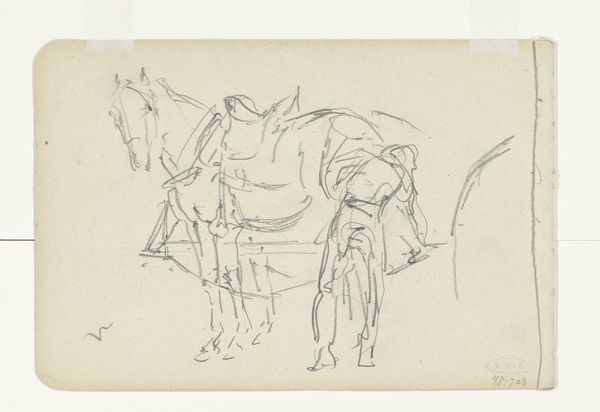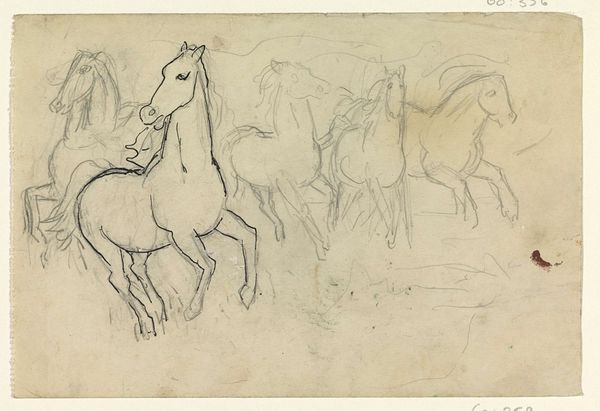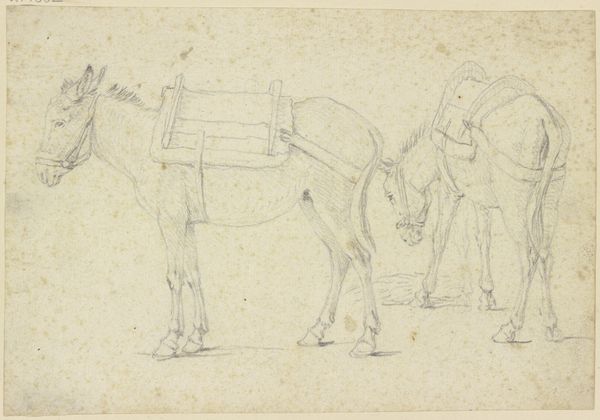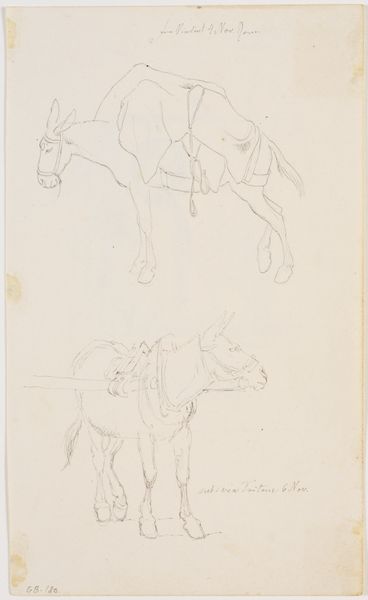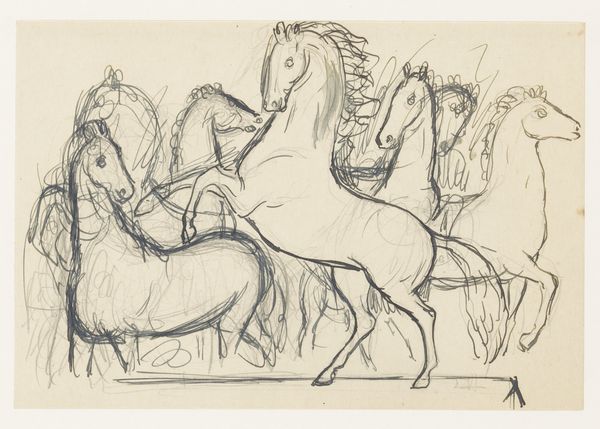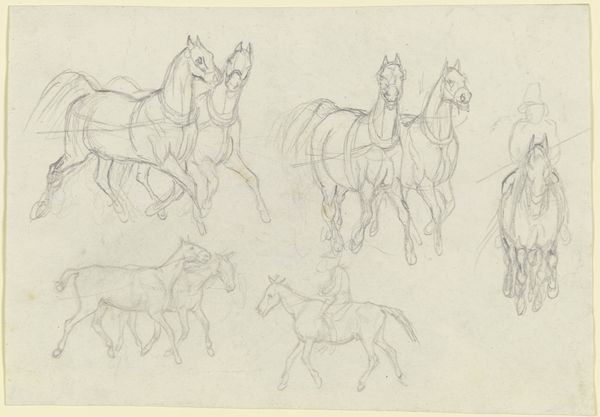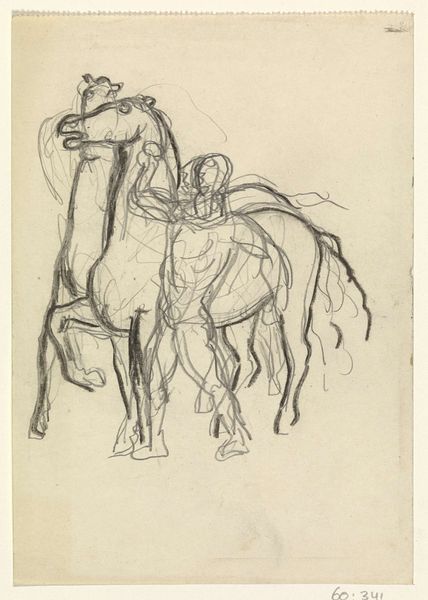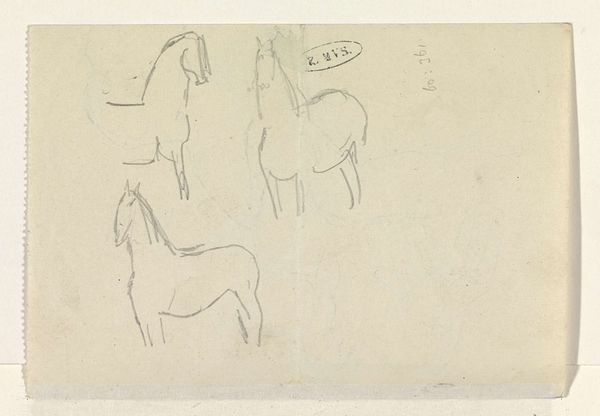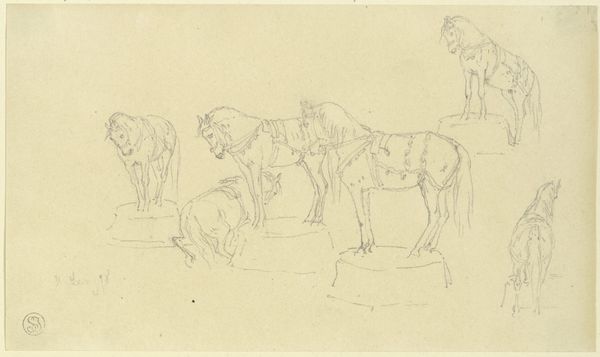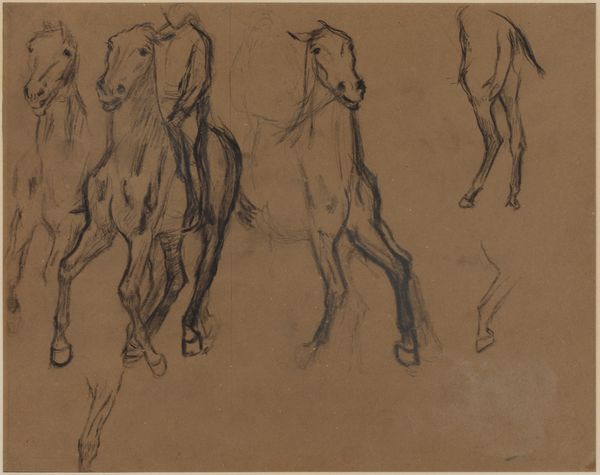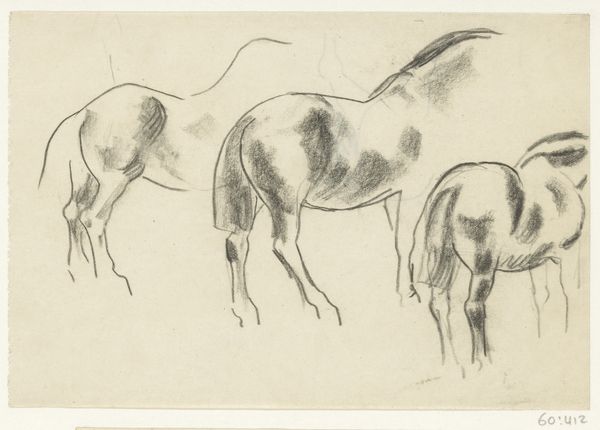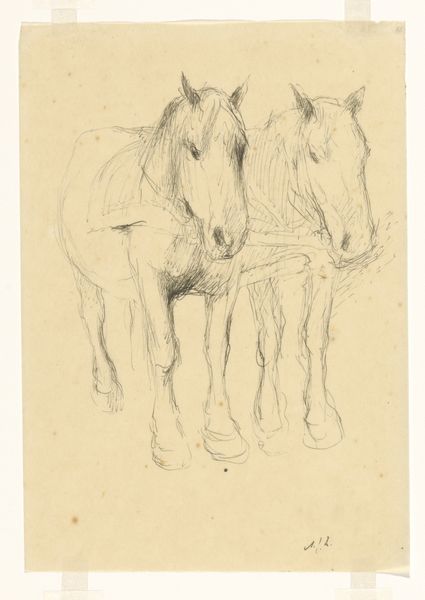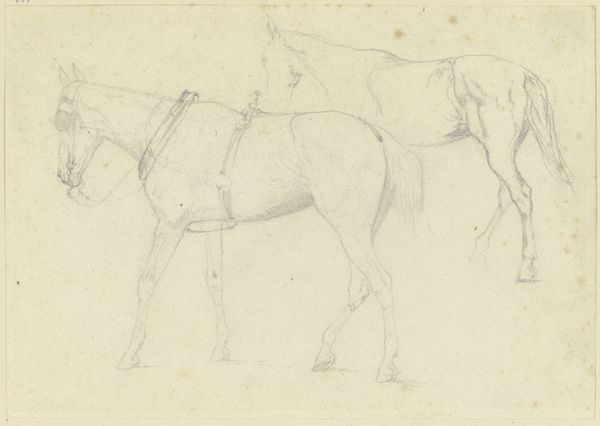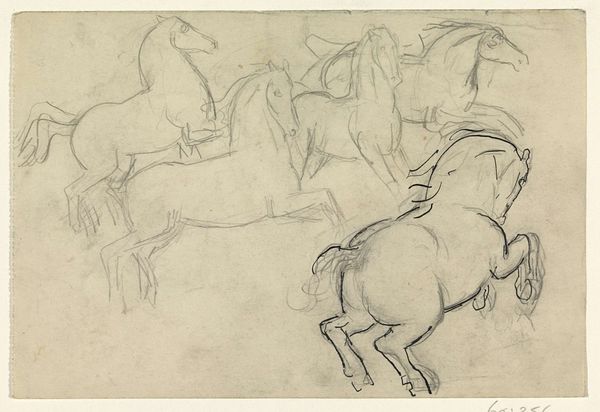
drawing, paper, pencil, chalk, charcoal
#
drawing
#
pen sketch
#
pencil sketch
#
landscape
#
figuration
#
paper
#
personal sketchbook
#
sketch
#
pencil
#
chalk
#
line
#
charcoal
Copyright: Public Domain
Curator: We’re standing before “Horse Market,” a sketch on paper currently held at the Städel Museum, attributed to Wilhelm Kalb. What strikes you initially? Editor: A raw energy. The lines are so immediate, so unrefined. There’s a kinetic quality that speaks of movement and transaction, like a fleeting glimpse of a lively scene captured mid-motion. Curator: The immediacy you observe derives, I think, from the artist’s evident interest in line and form. Consider how the network of pencil and charcoal establishes mass and depth, almost defying the static nature of the medium. The hatching and cross-hatching—particularly around the horses' bodies—create a visual vibration, an optical buzz. Editor: Horses in art, of course, represent so much: power, freedom, virility, the taming of nature. This market, though—it’s about economics, certainly, but I see other layers. It hints at the cycle of ownership, the burdens animals bear for human enterprise. There’s an age-old drama of dominance at play. Curator: The drama unfolds in the spatial organization, too. Notice the interplay between positive and negative space, especially within the figures themselves. The anatomical accuracy is secondary; it's the suggestion of volume through these brisk, almost frantic strokes that engages our eye. The sketchy application lends to the formal structure. Editor: True. While it captures the economic activity you mentioned, its depiction speaks to cultural memory. Horse trading carries symbolic weight in many societies. I am wondering, who will leave victorious? Will the beautiful creatures be cared for in the same capacity once the deal is closed? There is an aura of doubt within the simple scene. Curator: Precisely! In eschewing detail for the rudimentary structure, Kalb invites a broader dialogue, transcending the immediate subject matter. A few, economical strokes evoke tension and possibility. Editor: So, it’s less a portrait of commerce, perhaps, and more of a mirror reflecting our own relationships with power and freedom. Fascinating to glean so much from such apparent simplicity. Curator: Indeed. I walk away now pondering on its very artful balance of suggestion and form.
Comments
No comments
Be the first to comment and join the conversation on the ultimate creative platform.
